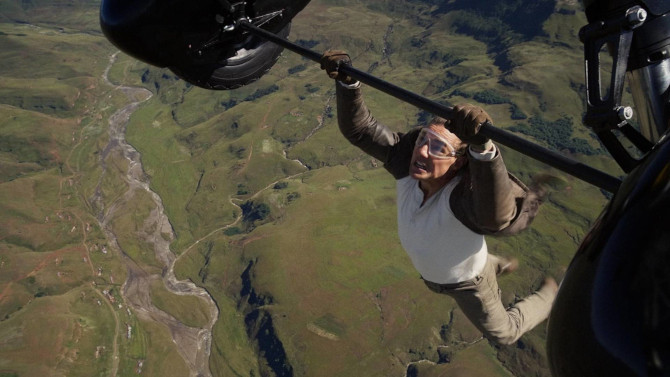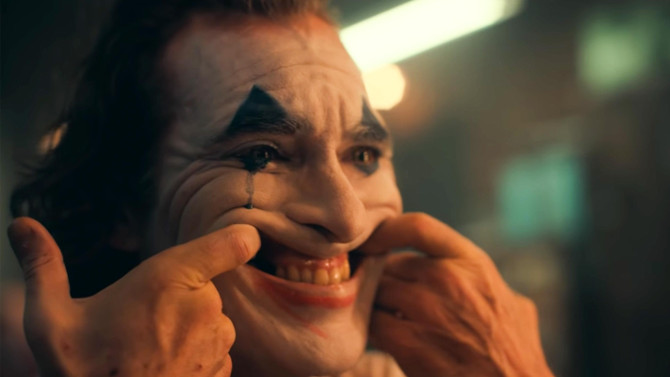
An Impossible Mission
How do you wrap up a franchise like Mission: Impossible? That is, if this even is the final installment... as they’ve made it sound (while at the same time, stars not named ‘Tom Cruise’ pipe up and suggest that might not be so). It has been twenty-nine years, with different writers and visionary directors – from twisty Brian De Palma and the action hair stylings of John Woo, to the lens flares of J.J. Abrams and animation expert Brad Bird, it was only about ten years ago that the franchise decided to opt for The Usual Suspects scribe Christopher McQuarrie for the final four. To return to that opening question once more, you could end with a Sopranos’ style cliffhanger, simply make another entertaining movie like the many before – like Everybody Loves Raymond did it with its final episode, or try to tie everything up in a neat little bow by bringing everything together as the Daniel Craig era did with James Bond. Well, it is definitely more along the lines of the latter example, with some distinct differences.
-

Tears of a Clown
JokerNovember 10, 2019As you read this review, my recommendation would be to go to Youtube and search for the song “Smile” (there are several versions, I would recommend Nat King Cole’s) – and listen to it in the background. Playing a part in both the trailer and film Joker (2019), the poignant lyrics (by John Turner and Geoffrey Parsons) tells you that, “If you smile through your fear and sorrow Smile and maybe tomorrow You’ll see the sun come shining through For You.”, even while the beautifully melancholic melody (written by Charlie Chaplin) tells you a wholly different story. . . one of a smiling clown truly hiding a frown. Also look for a special screening of Chaplin’s Modern Times that plays a part in the film – The Tramp playing the clown despite the crippling burden people and society have put on him.
-

A Shot in the Dark
Lights OutOctober 31, 2019I’ve always been a fan of horror films that leave the monstrous villain lingering hidden in the darkness. . . viewers’ minds bringing forth much scarier visions than what would usually come by way of CGI or makeup. A film that faithfully follows this rule (both literally and figuratively) is the 2016 horror flick Lights Out, directed by David F. Sandberg. Based off of the director’s own 2013 short film of the same name
-

Out of the Pits
RabidOctober 29, 2019Only David Cronenberg’s second feature film (which he both writes and directs), 1977's Rabid continues his precedence for a very unique form of horror, often referred to as ‘body horror’. . . a study in human beings, their fears, apprehensions, an awkwardness revolving around their own (and others’) bodies. Set in and around one of the most unique cities in North America – Montreal, the genesis event finds a couple, Rose (pornstar Marilyn Chambers) and Hart (Frank Moore), getting in a horrific motorcycle accident in the country. Though Hart is beat up, it is Rose that is truly in rough shape. Stranded in a most unpopulated place, they are fortunate that the exclusive Dr. Keloid Clinic for Plastic Surgery (a sort of touch up resort) is nearby. . . taking the severely injured woman in for immediate surgery.
-
Things That Go Bump In the Night
 The NurseWhisperOctober 27, 2019
The NurseWhisperOctober 27, 2019A double feature brimming with atmospheric terror, The Nurse and Whisper, both released in 2017 by filmmaker Julian Terry (with each running exactly two minutes), revel in the unknown that lies just beyond our vision and understanding. . . The Nurse finds poor little Emily (Aria Walters) – a young girl, alone in a hospital late one night (waiting for her mother to return). With some sort of eye issue, bandages cover her main sense. . . vision gone, her hearing amplifies, picking up what appears to be the sound of a nurse’s cart being pushed into her room – yet, when she calls out for whoever is there, eerily, no answer comes.
-

That Old Black Magic Called Love
The Love WitchOctober 22, 2019Like bathing in the seductively sweet smells of incense and peppermint (and we mustn’t forget to add a tinge of hallucinogenic drugs), writer/director/producer Anna Biller’s 2016 fantastical multi-genre film The Love Witch is an amorous hand penned letter to the classic Hollywood era, as well as both the sexploitation and horror pictures of the 1960s and 70s. Shot in glorious 35mm film (a rare thing these days), the narrative follows Elaine (Samantha Robinson), a stunning young woman getting away from San Francisco to start a new life in Arcata. The first time we see her she is entirely in red. . . a classic vermilion tinged convertible, ruby dress, and even luggage to match – a stop light with mixed messages that is somehow prompting you to go. Yet it is her perfectly done eye makeup that must be watched. . . for it draws you into her piercing gaze, a look that will force you into those chestnut orbs – turning you into a reverse narcissist, only obsessed with a women you’ve never even met.
-

Slow Mo
EndlessOctober 18, 2019Opening with a quotation from Dr. David Eagleman, “When your death is near, time will seem to slow to a crawl”, writer/director/producer Matt Bloom takes these words to heart, his horror short film Endless (2011) an eight minute hors d’oeuvre shot entirely in slow motion (you don’t see that everyday). Showing every minute detail, what would in reality be a thirty second action scene slows to a crawl, an intense roller coaster ride full of intricate twists as well as dramatic ebbs and flows of mixed emotions. You wouldn’t think that thirty seconds of anything could lead to more ups and downs, but Bloom takes what looks to be a thrilling possible murder scene (like something you would see in Alfred Hitchcock’s Psycho), and tweaks it in a unique way where things are not what they seem.

